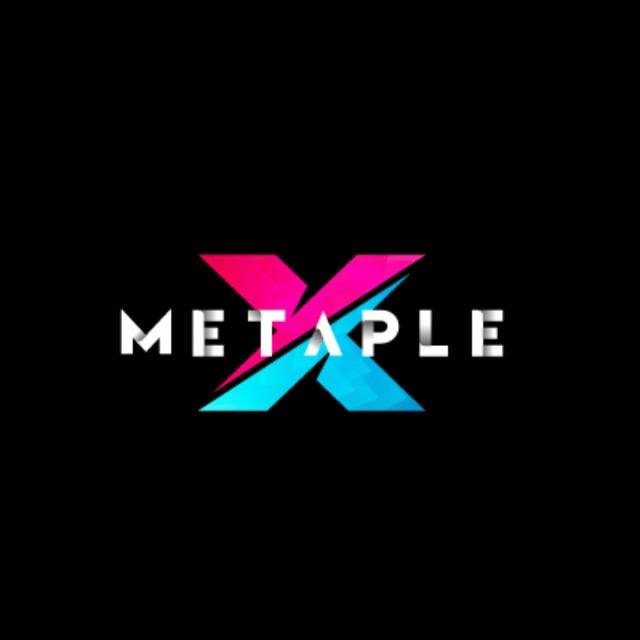METAPLE FINANCE : Build your Future here

INTRODUCTION
A cryptocurrency is an encrypted data string that represents a monetary unit. It is monitored and managed by a blockchain. This peer-to-peer network also acts as a secure log of transactions such as buying, selling, and transferring. Unlike actual money, Cryptocurrencies are decentralized, meaning governments or other financial organizations do not issue them.
Cryptocurrencies are produced (and secured) by cryptographic methods. This method is maintained and confirmed through a process known as mining. In this process, transactions are processed and validated by a network of computers or specialized hardware such as application-specific integrated circuits (ASICs). The procedure rewards the miners who power the grid with bitcoin.
Popular cryptocurrencies include Bitcoin, Ether, Litecoin, and Monero.
The cryptocurrency landscape is quite varied. With few obstacles to overcome, almost anybody who understands blockchain technology may establish their cryptocurrency if they want. Over 1600 cryptocurrencies are listed on large, mid-sized, and specialized exchanges.
The number of cryptocurrencies and digital tokens with real relevance can be lowered to the double digits. That smaller group can be further subdivided into cryptocurrencies. Those currencies are often traded enough to have genuine liquidity or are used to pay for usage of a blockchain platform with utility tokens. We may undoubtedly put 20 to 30 various digital currencies in this category.
Bitcoin and Ethereum have been the two most popular cryptocurrencies from the beginning of the cryptocurrency phenomena (Ether).
Aside from Bitcoin and Ethereum, there are other prominent cryptocurrencies, although their value and popularity fluctuate. The Crypto 10 Index is made up of the most popular cryptocurrencies at any given time and is also available for trading.
RELATIONSHIP WITH FINANCE
What Exactly Is Cryptocurrency Trading?
Taking a financial position on the price direction of individual cryptocurrencies against the dollar (in crypto/dollar pairings) or against another crypto (through crypto to crypto pairs) is what cryptocurrency trading entails. CFDs (contracts for difference) are a popular way to trade cryptocurrencies because they provide greater flexibility, leverage, and the option to take short and long bets.
Since Bitcoin's online debut a decade ago, cryptocurrency trading has grown in popularity. Cryptocurrencies are digital money produced via blockchain or peer-to-peer technology that employs encryption for security. They vary from fiat currencies issued by governments worldwide in that they are not physical, instead consisting of bits and bytes of data. Furthermore, cryptocurrencies, such as a central bank, lack a central entity or authority that issues them or controls their circulation in the economy. Cryptocurrencies are not regarded as legal cash since any government entity does not publish them.
Even though cryptocurrencies are not recognized as legal cash in the global economy, their potential to change the financial landscape makes them difficult to dismiss. Simultaneously, blockchain technology is the foundation for cryptocurrency generation and has created new economic opportunities for traders to capitalize on.
Cryptocurrency Varieties:
While hundreds of cryptocurrencies are available now, traders' attention appears to be centered on only a half-dozen cryptocurrencies. Bitcoin, the initial cryptocurrency, is included in the list of most popular cryptocurrencies. Bitcoin branched off two new extra virtual coins due to a "hard split" in the original Bitcoin blockchain: Bitcoin Cash and Bitcoin Cash ABC. Other notable cryptocurrencies commonly traded on cryptocurrency exchanges and online CFD trading platforms include Ethereum and Litecoin.
Popular cryptocurrencies are classified into numerous 'types.' Some are meant to provide an alternative to fiat currency. Bitcoin, Bitcoin Cash (BCH), Bitcoin Cash ABC, and Litecoin are among them. Ethereum, on the other hand, is only meant to be "spent" to use the Ethereum smart contracts platform, which may be used to develop decentralized applications (Dapps). As a result, Ethereum is seen as a 'utility token' rather than money. Finally, there is the Crypto 10 index, which is similar to a stock market or currency index but consists of the top ten most liquid cryptocurrency assets.
Bitcoin (BTC)
Bitcoin, or BTC, was the first cryptocurrency released worldwide in 2008. BTC was the first coin to use blockchain technology. Bitcoin has already surpassed the value of gold as one of the most valuable cryptocurrencies in the market.
Bitcoin Cash (BCH):
Bitcoin Cash is the outcome of a hard fork on the original Bitcoin network that happened in August 2017. The update enabled more giant blocks on the original blockchain, allowing quicker transaction processing.
Bitcoin Cash ABC (BAB):
Bitcoin Cash ABC (BAB) is the outcome of another 'hard split,' this time in the Bitcoin Cash network, which occurred on November 15, 2018. An update caused the hard fork to the Bitcoin Cash blockchain software that Bitcoin Cash Adjustable Blocksize Cap (thus the 'ABC') planned to implement. At the time, Bitcoin Cash Adjustable Blocksize Cap was the most popular blockchain software client. The goal of the modification was to enable non-cash transactions such as smart contracts and Oracle prediction services. Topological transaction ordering was also proposed as a replacement for canonical transaction ordering by those behind the fork.
However, not all Bitcoin Cash network participants or nodes consented to the upgrade. Hence, another hard fork occurred when the promotions were implemented, resulting in Bitcoin Cash ABC.
Crypto 10 Index:
The Crypto 10 Index is a tradable benchmark index for the cryptocurrency asset class. It consists of the ten most prominent and liquid cryptocurrencies and tokens, with values averaging across multiple significant exchanges. The index was standardized at 1000 points on December 23, 2016. As of January 9, 2018, it was being recalculated on an ongoing basis against the market movements of its ten members.
Ethereum (ETH):
Ethereum is a blockchain network built on the original Bitcoin blockchain technology designed to be a quick way to execute transactions. Vitalik Buterin suggested the cryptocurrency for the first time in November 2013.
Litecoin (LTC)
In October 2011, Litecoin was introduced to the cryptocurrency industry as an attempt to facilitate cross-border payments. It was created to provide quicker transaction verification than Bitcoin.
Factors Influencing Cryptocurrency Prices:
Aside from serving as the foundation for the development of cryptocurrencies, blockchain technology has broader ramifications in the global economy, including the potential application in smart contracts and the Internet of Things (IoT). Cryptocurrencies are not subject to the same market dynamics as traditional markets because they were recently launched in the previous decade and are not regarded as legal cash. This implies that cryptocurrency trading is not the same as trading in traditional financial markets.
Because cryptocurrencies are decentralized, their price swings are less influenced by variables such as data releases, political uncertainties, and interest rate changes. Furthermore, because cryptocurrencies are novel financial instruments, they have a limited number of correlated assets that might influence their price fluctuations.
Nonetheless, cryptocurrencies' pricing can be influenced by various variables, including advances in blockchain technology and governmental efforts to limit their acceptability and "traceability" in financial markets. Disagreements in the news over how a particular cryptocurrency should be improved or processed may impact its price. Any security holes discovered by hackers are likely to hurt cryptocurrency's price. Of course, government policies and laws that aim to prohibit or restrict the selling of cryptocurrencies will impact their pricing.
METAPLE IN TRADING
How Are Cryptocurrencies Traded?
There are various ways to trade cryptocurrencies. The first method uses a cryptocurrency exchange to purchase and sell digital crypto coins. Another option for trading cryptocurrencies is to use derivative financial products, such as Contracts for Difference (CFDs), which are available on Metaple Finance. The latter has grown in popularity in recent years since it requires less financial expenditure while allowing traders to bet on cryptocurrency price changes without owning them.
Is Trading Cryptocurrency Right For Me?
Like other types of financial trading, a cryptocurrency needs proper knowledge, abilities, and cash. Assume you want to trade in the bitcoin market. In that scenario, you should guarantee that you have all of the necessary talents for market analysis. It should be mentioned that cryptocurrencies are more volatile than traditional instruments and, as a result, riskier than most people are accustomed to. This volatility might create additional possibilities for profit. Still, it can also result in losses more significant than you are ready to suffer.
Getting Started With Cryptocurrency Trading
If you determine that cryptocurrency trading is for you, you may begin by creating a trading account with Metaple Finance. You may choose the crypto CFDs you wish to trade from the extensive offering and initiate a position when your analysis indicates that the timing is correct.
Metaple Finance is a peer-to-peer cryptocurrency exchange platform.
What exactly is P2P trading, and how does it function on peer-to-peer cryptocurrency exchanges?
Peer-to-peer (P2P) trading is a cryptocurrency exchange mechanism that allows traders to trade directly with one another without requiring a centralized third party to conduct the transactions.
Unlike traditional Bitcoin (BTC) exchanges, which often feature rigorous restrictions and require users to go through a verification procedure before accessing and utilizing the site, P2P trading platforms have far looser standards.
Instead of utilizing an automated engine to perform your transactions, you may choose your favorite offer and trade directly with a counterparty in P2P trading. This gives you greater leeway in selecting the best rate and payment option for your needs—at a lesser cost. You can also better protect your privacy by working with a direct counterparty.
Due to these features, P2P trading is tempting to people searching for a more fundamental and straightforward approach to exchanging bitcoins.
TRADING

How does peer-to-peer cryptocurrency trading work?
P2P trading systems enable trades by connecting buyers and sellers. The forum will usually charge a modest fee for each transaction. It will require members to keep their monies in a separate digital wallet managed by the platform.
P2P exchanges are frequently compared to marketplaces like Craigslist or Facebook Marketplace since they connect crypto buyers and sellers. Buyers and sellers may often browse crypto advertising or make their own.
Most peer-to-peer trades include a feedback or rating system to safeguard all parties in the transaction, giving an extra degree of security for everyone engaged. For example, suppose you meet someone on social media who wants to purchase Bitcoin and you want to sell. You can't do that on social media because it's not safe.
Because these are not P2P networks, it isn't easy to create trust on platforms such as Facebook Marketplace or Twitter. You can't be sure that the buyer will complete the payment for the Bitcoin after receiving it.
However, using a P2P platform like Metaple Finance, you may verify their reputation and ratings before engaging in any transactions.
The key features you should look for in a P2P trading platform are:
Robust security: The exchange should have strong security features such as multi-factor authentication and encrypted currency storage to safeguard your data and assets.
Reputation: You must conduct thorough research on the exchange you intend to use to verify that you are working with a reputable and trustworthy platform. This involves reading customer reviews and looking for red flags.
Supported currencies: When selecting a P2P exchange, ensure it supports the coins you want to purchase or sell.
Payment methods: The platform should include several payment options, such as bank transfer, credit/debit card, or PayPal.
Fees: Make careful to examine the platform's costs, as they might vary based on the exchange. Your payment provider may also charge you fees if you use specific methods to fund your account.
Customer support: It's critical to have access to customer support if you have issues with the platform or need assistance with a deal.
DIFFERENCE BETWEEN METAPLE AND OTHER TRADING PLATFORM
Is peer-to-peer trading more profitable than established exchanges?
Because there is no centralized authority to control pricing, many believe P2P crypto trading might be more profitable than traditional exchanges. As a result, peer-to-peer markets may frequently provide better exchange rates and reduced costs, allowing you to optimize your earnings while trading cryptocurrencies.
Furthermore, due to the enormous number of traders that use P2P platforms, they have better liquidity than traditional exchanges. It implies that you will have a simpler time finding buyers or sellers for your selected currency at any moment. However, it is critical to conduct research before choosing a platform and always to exercise prudence while performing online transactions.
P2P crypto trading, with proper study and due diligence, may be an efficient way to purchase or sell cryptocurrencies fast and simply whether you want to profit from price volatility or enjoy greater freedom when digital trading currency, the perks of this expanding market are worth examining.
Metaple Finance uses Automated Market Maker (AAM)
What is AAM?
The fundamental protocol for decentralized exchanges with an independent trading mechanism is AMM. This reduces the need for centralized authority like exchanges and other financial institutions. Said, it enables two users to swap assets without needing an intermediary.
The decentralized finance (Defi) ecosystem includes automated market makers (AMMs). They enable permissionless and automatic trading of digital assets through liquidity pools rather than a traditional market of buyers and sellers. AMM users provide crypto tokens to liquidity pools, the values of which are determined by a fixed mathematical formula. Liquidity pools may be improved for various reasons and are a vital tool in the Defi ecosystem.
AMMs enable digital assets to be exchanged without authorization and automatically by utilizing liquidity pools rather than a traditional market of buyers and sellers. Buyers and sellers provide varied asset prices on a conventional trading platform. When other users agree on a posted cost, they execute a deal, and that price becomes the asset's market price. Stocks, gold, real estate, and most other assets trade using this standard market structure; however, we take a different approach to asset trading.
AMMs are a financial instrument specific to Ethereum and decentralized Finance (Defi). This new technology is decentralized, constantly open for trade, and does not rely on traditional buyer-seller interactions. This innovative method of trading assets represents the ideas of Ethereum, crypto, and blockchain technology in general: no single entity controls the system, and anybody may design and participate in new solutions.

Liquidity Pools and Liquidity Providers
The ease with which one asset may be changed into another, usually a fiat currency, without influencing its market price is referred to as liquidity. Before the introduction of AMMs, liquidity was a problem for Ethereum-based decentralized exchanges (DEXs). Because it was a new technology with a confusing interface, the number of buyers and sellers was limited, making it challenging to locate enough individuals eager to trade regularly. AMMs address the issue of constrained liquidity by forming liquidity pools and incentivizing liquidity providers to deliver assets to these pools. The more the investment in a collection and the greater the liquidity of the pool, the easier trading on decentralized exchanges becomes.
Instead of trading between buyers and sellers, users on AMM platforms trade against a pool of tokens known as a liquidity pool. A liquidity pool is essentially a shared pot of tickets. Users' supply passes to liquidity pools, and a mathematical formula determines the price of the tokens in the collection. Liquidity pools may be improved for different purposes by modifying the recipe.
By giving passes to an AMM's liquidity pool, anybody with an internet connection and ERC-20 tokens may become a liquidity provider. For delivering receipts to the collector, liquidity providers often earn a charge. Traders who engage with the liquidity pool must pay this charge. Liquidity providers have recently been allowed to make yield in the form of project tokens via a process known as "yield farming."
For future information click any of this link below 👇
Twitter: https://twitter.com/MetapleFinance?t=uqPC9wz0XOGnek_iTstmfw&s=09
Facebook: https://m.facebook.com/TheMetapleFinance
Telegram :
https://t.me/MetapleFinance
YouTube:
https://youtube.com/channel/UCPwpi8vXIGDE6eZbV4gXRdQ
Medium:
Metaple Finance on Medium https://medium.com/@metaplefinance
Website: https://metaple.finance/
White paper: https://docs.metaple.finance/
Author's Information
Name : Shaysab27
Forum profile link: https://bitcointalk.org/index.php?action=profile;u=3248265
Telegram username: @Shaysab28 ( https://t.me/Shaysab28 )
Proof of authentication: https://bitcointalk.org/index.php?topic=5405275.msg60514911#msg60514911
BSC 20 address:
0x7F126c10Fa4a8C41a19a8F08E63De6A7d23c3486

Your post was upvoted and resteemed on @crypto.defrag